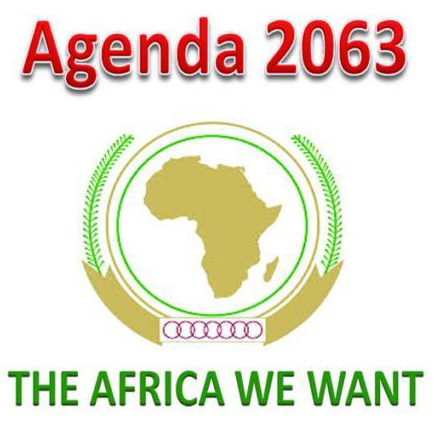9 to 10 December 2022
Scottish National Gallery Edinburgh, United Kingdom

December 09-10, 2022

“We are facing the first global shock of the 21st century in COVID-19, with its disruptive and devastating effects felt everywhere in the world. Private investors and SMSEs must be mobilized. Greater leveraging is needed to further boost the private sector’s ability to mobilize, especially in the area of infrastructure. Invest plenty, fast and well: that must be our motto. And it is crucial to ensure capacity so that the whole world can be vaccinated, because we will only emerge from this crisis if everyone has the means to do so.“


The COVID-19 crisis has taught us that the pandemic and containment measures do not impact everyone in the same way. Among the private sector, Micro-, Small and Medium-sized Enterprises (MSMEs), especially those led by women, youth, ethnic minorities and migrants, suffered the most. An International Trade Centre survey on COVID-19 impact among businesses in 136 countries has shown that nearly 62% of women-led small businesses have been strongly affected by the crisis, compared to just over half of firms led by men, and women-owned are 27% more likely not to survive the pandemic.
Small and Medium Enterprises (SMEs) play a crucial role for economic development of African countries. They are a vital engine in African economy, since they drive growth, create employment – especially among youth – and spearhead innovation. They provide a customer base to larger companies across the supply chain and supply vital goods and services to companies and households, helping to keep the wheels of the economy in motion.
In addition, they can leverage their agility to design and incubate new technologies and business models to build a better future. Many of Africa’s SMEs have the potential to become tomorrow’s large corporations that the continent needs to continue on its path to growth and prosperity. From a trade perspective, intra-African trade is not likely to improve if factors that inhibit the participation of SMEs are not addressed. From the foregoing SMEs are key elements for the successful implementation of the Africa Continental Free Trade Area (ACfTA.)
However, many studies reveal that SMEs growth in Africa are constrained among others by lack of financial support, poor management, corruption, lack of training and experience, poor infrastructure, and insufficient profits. They are currently highly exposed to the negative impact of the Coronavirus disease (COVID-19). So, clearly, supporting their survival is crucial for mitigating the economic systemic impact, but also to sustain employment and to create the conditions needed for future growth, once the pandemic is over. While the COVID-19 pandemic has affected all segments, it is arguable that the impact on SMEs is far more pronounced, particularly with regards to their larger counterparts for a number of reasons. The restrictions imposed to contain the COVID-19 pandemic triggered the most severe global recession in the post-war period. The majority of small and medium-sized enterprises (SMEs) either had to close operations or faced significant falls in revenue. Even though the adoption of digital technologies is more difficult for smaller firms, online sales helped to contain reductions in revenue for a number of SMEs. In addition, policy responses were quick and strong overall and they largely contributed to avoid a wave of bankruptcies so far.

With the continent being home to seven of the world’s 10 fastest-growing economies, Africa has a promising decade ahead of attaining the 2030 agenda from now. It is expected that economic growth across Africa will continue due to the collective action among African and global policymakers to improve the livelihoods of all under the blueprint of the Sustainable Development Goals and the African Union’s Agenda 2063 which serves as the representative of the shared energy and excitement around Africa’s potential.
With business environments improving, regional integration centered around the African Continental Free Trade Agreement progressing, and the transformational technologies of Fourth Industrial Revolution spreading, never before has the region been better primed for trade, investment, and mutually beneficial partnerships. The recent, unprecedented interest of an increasingly diversified group of external partners for engagement with Africa highlights this potential. Despite the continent’s promise, though, obstacles to success linger, as job creation still has not caught up with the growing youth labor force, gaps in good and inclusive governance remain, and climate change as well as state fragility threaten to reverse the hard-fought-for gains of recent decades.
SMEs in the sectors most impacted by lockdown measures and those with significant reductions in sales disproportionately benefitted from government support within countries. Nevertheless, there have been difficulties in reaching the self-employed, smaller and younger firms, and women and minority entrepreneurs. There are also significant cross-country differences in the proportion of SMEs receiving government support, in part reflecting institutional settings, effectiveness of delivery mechanisms and fiscal capacity. A large proportion of SMEs continued to express the need for additional support in the future, especially in countries with strict containment measures in place. Looking ahead, as the economic situation progressively normalizes and support measures are unwound, governments will need to ensure that debt does not endanger viable firms, and that resources are reallocated from non-viable businesses.
Innovation has become a necessity for all contemporary enterprises that want to survive in a world characterized by competition, technological change, and recurring crises. The concept of innovation refers to the use of new technology or new management practices in an organization to achieve a targeted improvement in its operations (Tornatzky et al.). From a SME perspective, innovation commonly indicates new products or processes that address customer needs more competitively and profitably than existing ones (O’Regan&Ghobadian, 2006; Zahra et al., 1999).
Technology foresight provides support to innovation, and incentives and assistance to enterprises in the domain of technology management and technology transfer, leading to enhanced competitiveness and growth. Developing countries and regions are showinggrowing interest to master and utilize Technology Foresight methodologies and applications to better drive and focustheir industrial development sectors, anticipate future opportunities, define strategies forsustainable economic growth and prepare their local enterprises to enter the global market. The approach focuses on industrial development issues to assists developing countries in upgrading their industrial sectors from resource-based to technology-based inorder to better integrate their production into the international economy. This is instrumental in identifying risks and opportunities thus enabling governments torespond successfully to the present and prepare for future challenges and opportunities.
Indeed, to deal successfully with the challenges of, and risks from, globalization developingcountries must improve their market access capacity by adopting new strategies to counteractthreats from the tremendous competition in international provision of products and services.Only if a country is fit technologically and industrially can it compete to increase its share ofinternational markets. However, due to continuous changes and innovation from advances intechnology and applied research, international market preferences are continuously shifting in trends over the long term. This implies that without continuous monitoring of societal needsand consumer expectations, stable market shares today can be in danger tomorrow.

“What African countries need, apart from support for their health sectors, is support to keep their economies afloat and to protect SMEs from the cessation of business. … Never have we needed multilateralism and solidarity between our peoples as much as we do today. Cooperation must take precedence over competition, and herein lies the greatest challenge for Africa and for the world“.
Dorothy Tembo, Acting Executive Director of the International Trade Centre.
The Africa– Europe Small and Medium Enterprises (SMEs) Foresight Summitwith the theme “Addressing the needs of SMEs to support a sustainable recovery from covid-19 in accelerating agenda 2063 and 2030 implementation”will be a pivotal gathering where vital collaboration tools and appropriate technologies would be delved into to analyze how SMEs are affected in Africa by COVID-19 and to provide recommendation for mitigating the impact, discuss the transmission channels of the impact of COVID-19 to SMEs performance; discuss factors which make SMES highly vulnerable to the impact of COVID-19.Hosted both as capacity building forum and excellence awards event, participants in this gathering will access the tools they need to meaningfullyexamine how SMEs managers could continue to develop creative practices in relation to all enterprise activities to adapt to the challenges imposed by the pandemic, keep abreast of necessary business information solutions (whether through networking with other entrepreneurs or consultations and training) to help them make rational decisions to overcome the ordeal, update their plans and strategies to achieve the flexibility required to respond to the ramifications of COVID-19 and lastly develop a strategic business plan to address the negative effects of the crisis on their businesses after the pandemic to ensure continuity and survival.
MAJOR CROSS CUTTING ISSUES AND TOPICS TO BE ADDRESSED INCLUDE
“Since the onset of the pandemic, MSMEs using digital technologieshave fared better than their counterparts that do not. … Switching from cash to digital currency fosters productivity and profitability by reducing operational costs and making business transactions cheaper, smoother and more secure. … Promoting an environment that fosters a digital culture conducive to MSMEs will enable microenterprises to be competitive in a post-COVID environment”.

YOUTH FORUM